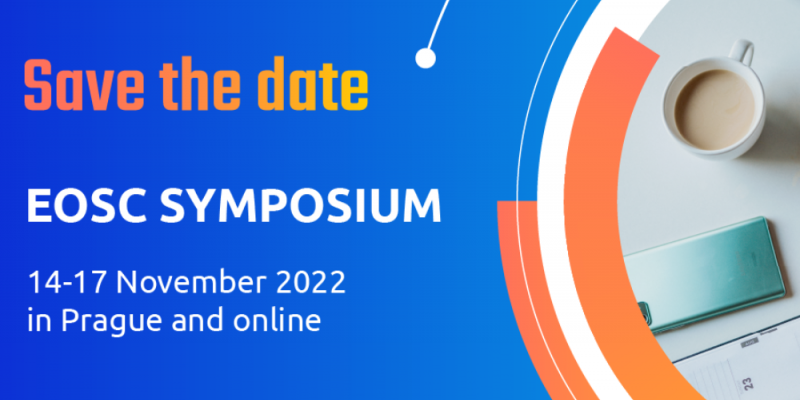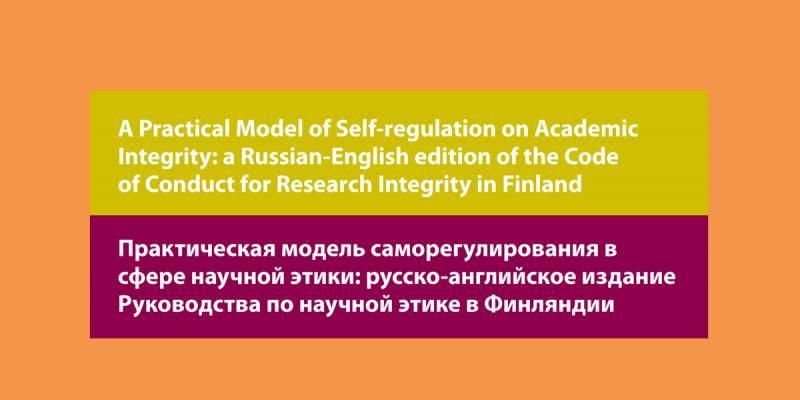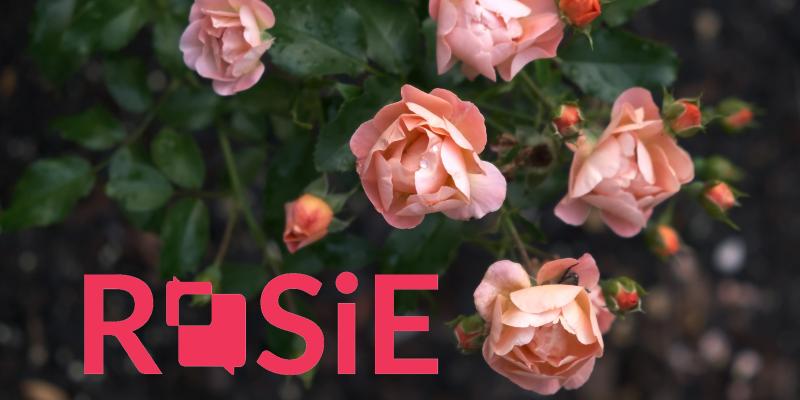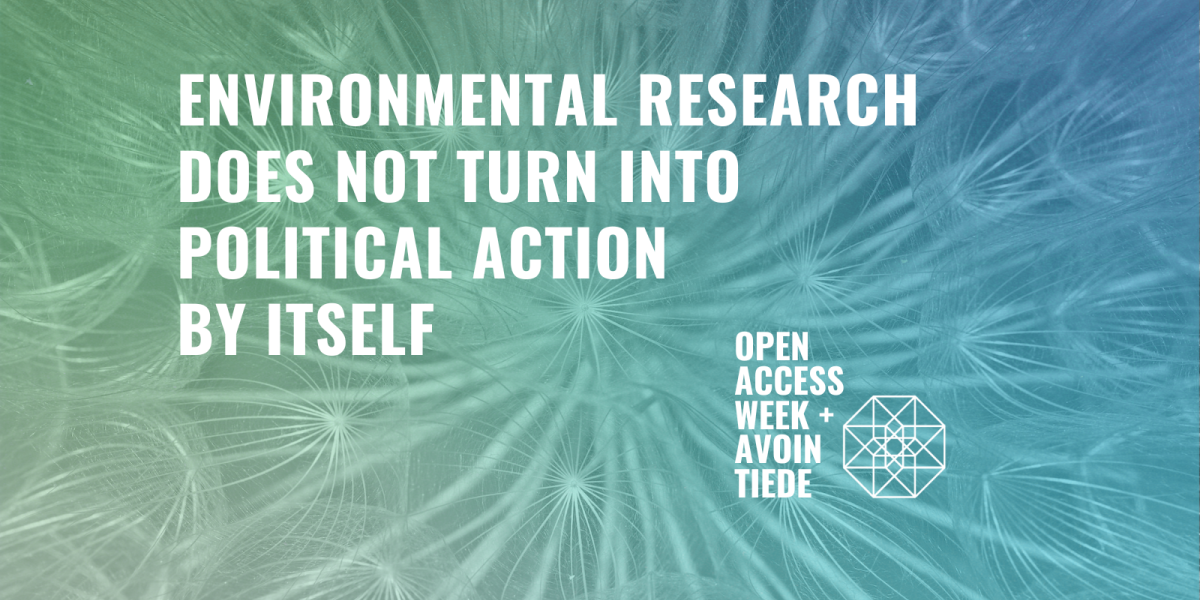
What does it take to bring together environmental science and politics? We asked Johanna Riitakorpi, the new Executive Director of the Forum for Environmental Information.
In order to respond to global climate and environmental crises, policy-making must rely heavily on scientific research. However, scientific research does not turn into political action by itself. Research on the environment and climate change can often be challenging to read, and most politicians are not professionals in environmental sciences. Timely, up-to-date and high-quality environmental information should be available to decision-makers in a fast-paced policy environment at the right time and in an easy-to-use format. At the same time, researchers’ work to find solutions for sustainable life requires time, perseverance, discussion and openness to new ideas.
Questions about meeting these needs are currently on the desk of Johanna Riitakorpi, the new Executive Director of the Forum for Environmental Information and Kaisa Välimäki, the coordinator of the Forum. The Forum for Environmental Information is a non-profit organisation that seeks to bring political actors and researchers together to discuss topical themes related to the environmental crisis, climate change and biodiversity loss. It acts as a mediator of research-based knowledge when there are gaps in the communication between research and decision-making. The target group of the forum consists of decision-makers in the Government, Parliament, municipalities and in the administration preparing decisions, as well as researchers who are informed about the current needs for information in the politics.
We met with Riitakorpi in the new office of the Forum for Environmental Information in Puistokatu 4, a space intended for research, work and events dealing with the ecological crisis. The 130-year-old house is on the verge of a new era, as environmental researchers and actors will soon begin to gather there to work and share their ideas.
Interpreter between Science and politics
After graduating as a marine biologist, Riitakorpi has worked as a parliamentary assistant. In her current work at the Forum for Environmental Information, she fluently combines her experience in both scientific environmental research and the political field. As environmental crises require particularly thoughtful but effective decision-making, Riitakorpi emphasises the smooth cooperation between science and politics: “By ensuring that the decision-makers and those who prepare decisions, in the Parliament and in municipalities, wherever they are, have the most up-to-date knowledge, we can develop the solutions to prevent climate change, greenhouse gas emissions and biodiversity loss.”
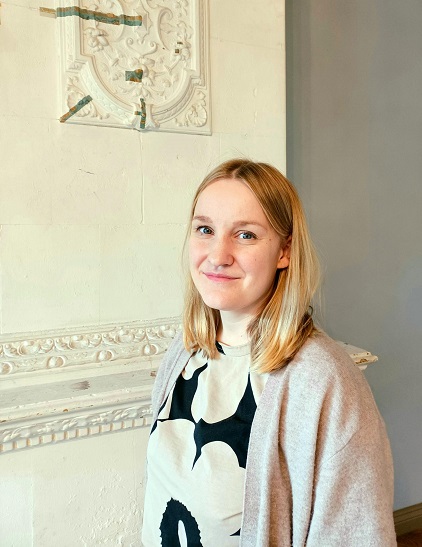 For politicians, timely and concrete information is of utmost importance. The role of the Forum for Environmental Information is described by Riitakorpi as an interpreter between the worlds of research and politics that speak different languages. Riitakorpi talks about the importance of equal dialogue: "We are trying to make it understandable to all parties." For the communicators and mediators of information, it is also important to recognise the current need of information in politics and decision-making. Riitakorpi describes scientific research as more long-term, and notes that researchers are often unable to provide clear answers to new questions as quickly as politicians might wish. However, the fundamental long-term nature of science must not be abandoned, and Riitakorpi emphasises that in order to find solutions to environmental and climate crises, scientists must be given space to do research without a pressure of giving fast answers.
For politicians, timely and concrete information is of utmost importance. The role of the Forum for Environmental Information is described by Riitakorpi as an interpreter between the worlds of research and politics that speak different languages. Riitakorpi talks about the importance of equal dialogue: "We are trying to make it understandable to all parties." For the communicators and mediators of information, it is also important to recognise the current need of information in politics and decision-making. Riitakorpi describes scientific research as more long-term, and notes that researchers are often unable to provide clear answers to new questions as quickly as politicians might wish. However, the fundamental long-term nature of science must not be abandoned, and Riitakorpi emphasises that in order to find solutions to environmental and climate crises, scientists must be given space to do research without a pressure of giving fast answers.
Solutions from structural changes
How can differentiated cultures of thought, debate and practice be better brought together? As an example, Riitakorpi highlights economic incentives for guiding researchers to reflect on the social impact of their own research. She sees them as a positive structure: “A researcher’s everyday life is often quite tough when you have to think about where to get money next. Instead of a stick, we have to also provide a carrot." Riitakorpi highlights the education of science communication in higher education as one good way to guide researchers to communicate their research to wider audiences. However, Riitakorpi points out that not all researchers can be required to play a role as the only public disseminator of their research. Here other actors, such as the Forum for Environmental Information, can become a mediator in support of the researchers.
However, the diversity and fast pace of the media field also challenges science communicators. According to Riitakorpi, based on a monitoring conducted by the Forum for Environmental Information, it is clear that both traditional and social media play a very important role in disseminating environmental information in Finland. Riitakorpi contemplates that environmental issues raise particularly strong feelings and opinions in a wider society, because they touch the livelihoods and lifestyles of all of us. Social media does engage both citizens and political actors in these important debates, but without the visibility and availability of easily accessible and understandable researched information, pseudoscientific voices are easily spread there as well.
“In the end, everything is linked to the appreciation of science and research.”
Still, according to Riitakorpi, politics and media cannot demand a faster tempo from research. The broader appreciation of science also forms the basis for understanding the long-term nature of science: "In the end, everything is linked to the appreciation of and trust in science and research. Riitakorpi underlines the appreciation of basic research alongside research focusing on innovations. The understanding of the constant evolution of science is also closely linked to its appreciation: "Science does not guarantee absolute truth, and that is completely natural. However, science strives for truth, so that it is possible to refute some previous research in the light of new knowledge. Knowledge grows and develops, and this is possible when the scientific community is diverse and the research results are openly available. At worst, politicians may pick and choose and use only research to support their already existing ideas. This should not be the case, but instead the most recent and reliable information should base the decision-making process."
For Riitakorpi, one thing is clear, although not easy: the greater appreciation of science that is open for new ideas and conducted with careful consideration requires, in addition to individual actions, a broader structural change. Through structural change, science could be more directly involved as the basis for decision-making. Also due to the challenges posed by social media and pseudosciences, a structural change in which science is brought more directly into decision-making would be a desirable direction, Riitakorpi says. In her view, as long as the structure encourages the sharing of information, it will be shared. This, of course, requires sufficient resources and strong cooperation.
Openness of Environmental Information also Supports a More Equal Field of Science and Sustainability Change Internationally
Bringing scientific environmental information into decision-making clearly contributes to the goals of open science in Finland. Riitakorpi points out that the benefits of opening up environmental sciences also go beyond the national level, as the openness of environmental information can at the same time support international sustainability goals. According to Riitakorpi, the opportunity and duty of prosperous Western countries to invest in science and its openness can also be positively passed on to decision-makers and citizens in countries where there does not exist the same resources for open research. One step towards a more equal field of science and politics globally can, therefore, be taken through Open science.
Towards Common Goals Through Encounters
Although the methods of science and politics often differ, according to Riitakorpi, there are more similarities than differences. "We should not think that even though the worlds of science and politics are different, that those people are different. After all, we are people and the goal is the same. We want to live a good life." The important thing is to enable dialogue between different actors and perspectives. This is not possible without equal encounters. “I think we can always strive for a more equal, accessible and safer dialogue. It will take a long time to fully achieve that,” Riitakorpi reminds us. She emphasises that decision-making must be based on research-based knowledge, even if dialogue between the worlds of science and politics is sometimes challenging: "If we can't trust in research, then what can we trust in?"
Interview: Anni Rastas
Text: Anni Rastas & Jonni Karlsson
The article is part of the Open Science + Open for Climate Justice series of the Open Science Secretariat and the International Open Access Week. In addition to the article series, the social media accounts of the Open Science Secretariat make social media posts from the content of the article series during the week.
Read also:
